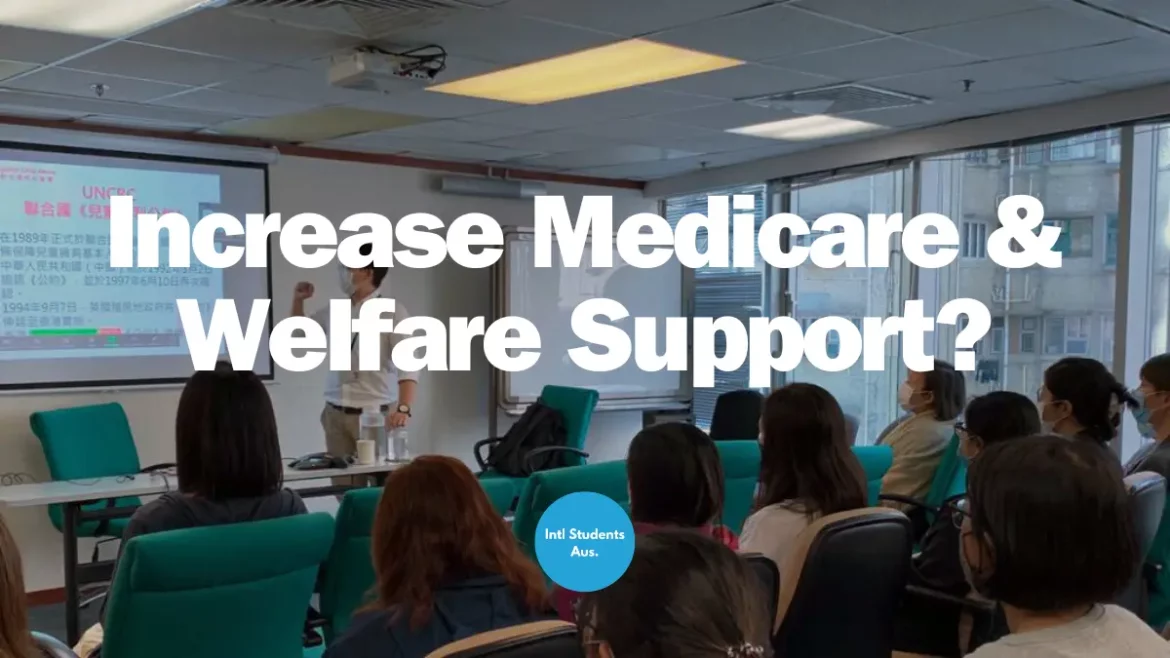In the ongoing discussion surrounding welfare benefits such as Medicare and Centrelink payments for international students in Australia, there’s an opportunity to reframe the conversation positively. While some may question the notion of extending welfare benefits to international students, it’s essential to approach the topic with an open mind and a commitment to fairness and inclusivity. Let’s explore why providing tailored welfare support for international students can be a positive step forward for Australia.
Promoting economic growth aka more money for everyday Australians
International education is a significant contributor to Australia’s economy, generating billions of dollars in revenue each year and supporting thousands of jobs. By investing in the well-being of international students, we’re not only fulfilling our moral obligation but also fostering economic growth and prosperity. When students feel supported and valued, they’re more likely to contribute positively to the economy both during their studies and after graduation, whether through part-time work, entrepreneurship, or skilled employment.
| 2019-20 | 2020-21 | 2021-22 | 2022-23 | |
| Higher Education | $25,269 | $17,862 | $13,502 | $24,116 |
| Vocational Education and Training | $8,041 | $7,878 | $6,098 | $8,511 |
| Schools | $1,317 | $986 | $648 | $851 |
| English Language Intensive Courses | $1,430 | $372 | $229 | $1,989 |
| Non-award | $834 | $140 | $104 | $651 |
| New Zealand | $263 | $192 | $129 | $158 |
| Ausaid/Defence | $184 | $124 | $65 | $149 |
| Total | $37,338 | $27,554 | $20,776 | $36,425 |
The data above illustrates the economic contribution of various sectors within the education industry in Australia over the years 2019-2023. Higher Education consistently led the sector in terms of economic impact, with figures ranging from 25,269 million AUD in 2019-20 to 24,116 million AUD in 2022-23. The overall total economic contribution of the education sector in Australia witnessed fluctuations over the period, from 37,338 million AUD in 2019-20 to 36,425 million AUD in 2022-23. These figures are expected to grow in the coming years.
Attract the brightest minds in the world. Are we losing the battle to Canada?
In recent years, Australia has faced increasing competition from Canada in attracting high-quality overseas students. While both countries boast world-class education systems and offer desirable study destinations, Canada has emerged as a formidable competitor, particularly in terms of attracting top-tier talent. The global landscape for international education has become increasingly competitive, with countries competing for the brightest minds from around the world. While Australia has traditionally been a preferred destination for international students, Canada has been steadily gaining ground, attracting a growing number of high-quality students from diverse backgrounds.
Canada’s favourable immigration policies and post-study work opportunities have also contributed to its appeal among international students. The Canadian government’s initiatives, such as the Post-Graduation Work Permit Program (PGWPP) and the Express Entry system, make it easier for international students to transition to permanent residency after completing their studies. This pathway to immigration has made Canada an attractive long-term destination for ambitious students looking to build their careers and settle abroad.
Providing benefits such as access to Medicare and Centerlink support to international students in Australia can be a strategic investment in attracting and retaining high-quality talent. Offering comprehensive healthcare coverage through Medicare ensures that international students have access to quality medical services, promoting their well-being and reducing concerns about healthcare costs. Additionally, access to Centerlink support can alleviate financial pressures, allowing students to focus on their studies and fully engage in academic and extracurricular activities. By providing these benefits, Australia demonstrates its commitment to supporting the holistic needs of international students, thereby enhancing its attractiveness as a study destination. Moreover, offering such benefits can serve as a competitive advantage over countries like Canada, where similar support systems may be lacking or less accessible. Ultimately, by prioritizing the welfare and success of international students, Australia can differentiate itself and position itself as a premier destination for high-quality education and talent acquisition.
What are some arguments against providing Medicare & Welfare Support for Overseas Students?
Opponents of providing Medicare and welfare support for overseas students often argue from several perspectives, primarily focusing on concerns related to costs, fairness, and potential misuse of resources.
They’re Here for Education, Not Handouts
Firstly, critics contend that extending Medicare and welfare benefits to international students would place an undue financial burden on Australian taxpayers. With the cost of healthcare and welfare programs already significant, the addition of a large cohort of international students could strain resources and lead to increased taxes or reduced funding for essential services for citizens and permanent residents.
Furthermore, opponents argue that providing these benefits undermines the principle of fairness and equality. They assert that welfare benefits are intended to support Australian citizens and permanent residents who contribute to the country through taxes and other means. Extending these benefits to international students, who may only be temporary visitors, is seen as unjust and potentially unfair to Australian residents who may face greater challenges accessing the same level of support.
Potential for Abuse and Exploitation
Additionally, there are concerns about the potential for abuse and misuse of welfare resources by international students. Critics argue that without stringent eligibility criteria and monitoring mechanisms in place, there is a risk of individuals exploiting the system for personal gain. This could include falsely claiming benefits or using them to support family members who are not entitled to receive assistance, thereby diverting resources away from those who genuinely need them. Opponents of providing Medicare and welfare support for overseas students believe that such measures would be costly, unfair, and potentially vulnerable to abuse, posing significant challenges to Australia’s healthcare and welfare systems.
In conclusion, fostering a welcoming environment for international students could be seen as a strategic investment in Australia’s economic future. By creating a better experience for them can have benefits that ripple across the entire economy, driving growth, creating jobs, and enhancing Australia’s global reputation as a premier educational destination. However, this can also encourage some students to abuse and take advantage of the system. We will continue to monitor what the Australian Minister of Education has to say about this topic in the coming months.


